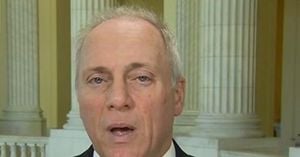Nearly half of all American adults are finding themselves in a losing battle against rising healthcare costs. Research shows that more and more people across age groups are unable to afford prescription drugs and routine doctor visits. The West Health-Gallup Healthcare Affordability Index highlights that healthcare affordability has seen a significant drop, with people aged 50 and above experiencing the sharpest declines.
The index, which tracks whether people have skipped medical care or prescriptions due to cost, paints a grim picture. Timothy Lash, president of the nonprofit healthcare research group West Health, noted that this trend is largely due to increasing healthcare prices. “High prices are one of the biggest impediments to a healthy aging population and a prosperous economy,” Lash said.
One poignant example is Mary Johnson, a 64-year-old retiree from Ohio. She’s had to choose between paying for her medications or cutting back on groceries. “I’ve been on a fixed income, and the rising prices of everything from food to utilities have made it impossible to keep up—add medical bills on top of that, and it’s unbearable,” she shared.
The new report found that while affordability has decreased for all adults, people aged between 50 and 64, and those over 65, have faced the most severe drops, both with an 8 percentage point decrease. Meanwhile, younger adults find themselves in a more precarious financial situation regarding healthcare, with one in ten aged 18-49 categorized as “cost desperate.”
An alarming 72 million people across the country have skipped necessary medical care in the past three months due to financial constraints. This trend underscores the vast number of Americans vulnerable to healthcare costs spiraling out of control, and experts warn it’s only getting worse. Commercial healthcare spending is poised to hit its highest growth level in 13 years by 2025, with medical costs projected to rise by 8% in group health plans and 7.5% in individual plans, according to PwC’s recent projections.
For regulators, the findings of this index add urgency to their work. Key provisions of the 2022 Inflation Reduction Act are being implemented to dampen the escalation in healthcare costs. Though measures like Medicare’s price negotiations for certain prescription drugs are first steps, such changes won’t take effect until 2026, leaving a sizeable gap until relief is felt.
The research also uncovered stark inequalities in healthcare affordability across racial and gender lines. Black and Hispanic adults are more likely to be categorized as “cost desperate” compared to their white counterparts. Similarly, women are about twice as likely as men to find themselves unable to pay for healthcare.
Despite these challenges, there’s an intriguing silver lining. Public perception regarding the value of healthcare received has improved in recent years. Some 36% of U.S. adults believe they’re paying too much for the quality of care they receive, a decrease from three years ago.
This contradiction highlights that while Americans are grappling with costs, they may be receiving better care in return. However, the broader implications remain troubling. “Healthcare provisions including empowering Medicare to negotiate lower drug prices will help increase affordability, but much more must be done,” Lash added.
With nearly half the population struggling, the question shifts from ‘how did we get here’ to ‘what can we do now?’ Policy changes are critical, but so are practical, immediate solutions for millions of people. Providers and insurers can help by offering clearer information and more robust financial assistance programs. As Lash advised, individuals should check with their local providers to understand true costs and available financial help.
But it’s not just the immediate cost that worries experts. The long-term impact of delaying or foregoing medical care can be devastating. Skipping treatments or medications could lead to more severe health problems down the road, resulting in even higher costs and worse overall health outcomes. A vicious cycle that further entrenches health and economic disparities.
As the sun sets on another day for countless Americans juggling their health and financial well-being, one thing remains clear: change is essential and urgent. As Lash succinctly put it, "High healthcare prices are a policy choice. It's time to enact different policies including fully transitioning from fee-for-service to value-based payment models, implementing more population-specific and person-centered care models, and increasing generic drug competition."



